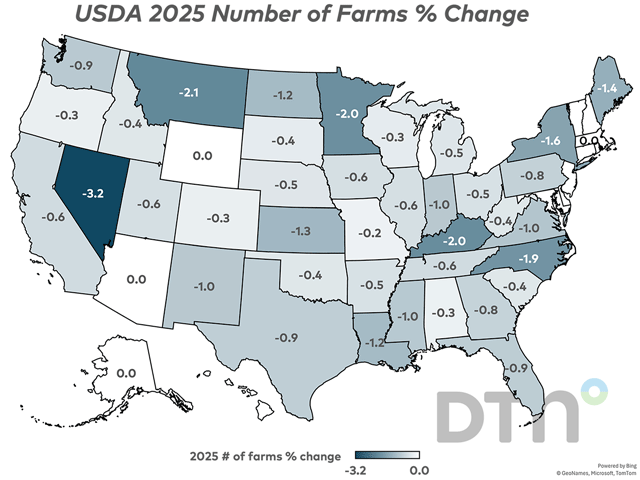Stocks Have Second-Worst Week of Year
NEW YORK (AP) -- The stock market slumped to its second-biggest weekly loss of the year Friday, breaking six consecutive weeks of gains. Fears that the holiday shopping season will be a dud tanked retail stocks.
Retailers ranging from department stores to dollar stores plunged after Nordstrom posted disappointing third-quarter results, just as Macy's had done earlier this week.
The price of oil continued to slide on evidence that global supplies are continuing to rise. The dollar could get even stronger, further pressuring oil and other commodities and affecting mining and energy companies.
The Dow Jones industrial average fell 202.83 points, or 1.2 percent, to 17,245.24. The Standard & Poor's 500 gave up 22.93 points, or 1.1 percent, to 2,023.04. The Nasdaq composite index slipped 77.20 points, or 1.5 percent, to 4,927.88.
Concerns about retail sales and skidding commodities prices have eroded the gains from October's big stock market rally. Stocks have now lost ground seven of the last eight days. Overall the S&P 500 is down almost 2 percent for the year.
Nordstrom sank $9.51, or 15 percent, to $53.96 after reporting weaker sales. The company also cut its forecast for the year. Macy's had done the same on Wednesday.
P[L1] D[0x0] M[300x250] OOP[F] ADUNIT[] T[]
The holiday shopping will kick into high gear with Black Friday in two weeks, and investors are becoming worried that the latest reports are signs that sales will be weak during the season, which is a crucial moneymaker for retail companies. Macy's and Nordstrom both hit two-year lows Friday. Consumer discretionary stocks were by far the worst performing group on the S&P 500.
J.C. Penney's results were about equal to analyst projections, but its stock lost $1.35, or 15.4 percent, to $7.44. Video game retailer GameStop sank $7.35, or 16.5 percent, to $37.18. Watchmaker Fossil Group plunged $18.62, or 36.5 percent, to $32.39. Fossil posted disappointing earnings Thursday afternoon and also said it will buy activity tracker maker Misfit for $260 million. Its shares hit their lowest level in five years.
Compounding those worries was a government report showing that U.S. retail spending edged up just 0.1 percent in October, a bit less than analysts expected. Prices charged by farmers, manufacturers and other producers fell in October. The figures show there is little sign of inflation in the U.S. economy. When inflation is higher, consumers have an incentive to spend more money.
Stifel Nicolaus analyst Richard Jaffe suggested the widespread selling was an overreaction. Shoppers will spend plenty of money this holiday season, he said, and while they're spending more money on smartphones and TVs and other big items than they used to, there will still be plenty of socks and sweaters given as gifts over the holidays.
"Christmas is boxed gifts," Jaffe said. "There will be a lot of gift giving, a lot of apparel sales."
Jaffe noted that Americans' shopping habits have changed a lot over the last few years. Consumers are making spending more on homes, cars, and vacations. Aging baby boomers don't buy clothes as often as they used to, and younger shoppers are more interested in technology.
The price of oil continued to fall after the International Energy Agency said commercial inventories reached almost 3 billion barrels at the end of September, a record. The IEA also said growth in global demand will slow down next year. Oil prices have dropped because demand can't keep up with ever-increasing supplies. The strong dollar makes dollar-denominated commodities costlier to buyers using yen, euro and other currencies.
U.S. crude slumped $1.01, or 2.4 percent, to $40.74 a barrel in New York. It's dropped about 13 percent this month and is at its lowest price since late August. Brent crude, which is used to price international oils, lost 45 cents, or 1 percent, to $43.61 a barrel in London.
Jim Ritterbusch of the oil trading firm Ritterbusch & Associates said crude could fall another $3 to $4 a barrel. It's gone as low as $37.75 this year.
In other energy trading, heating oil fell 2.5 cents to $1.381 a gallon. Wholesale gasoline dipped 3.4 cents to $1.239 a gallon. Natural gas edged up 10.1 cents to $2.361 per 1,000 cubic feet.
The price of gold fell 10 cents to $1,080.90 an ounce. Silver fell for the tenth day in a row, losing 2.1 cents to $14.20 an ounce. Copper dipped slightly to just under $2.17 a pound. All three metals are at their lowest levels in six years.
Generic drugmaker Mylan climbed after a long pursuit of Irish drugmaker Perrigo came to an end. Perrigo's shareholders rejected a $26 billion offer from Mylan, an offer Perrigo had called inadequate. Mylan logged the biggest gain on the S&P 500, adding $5.58, or 12.9 percent, to $48.78. Perrigo fell $9.65, or 6.2 percent, to $146.90.
U.S. government bond prices rose. The yield on the 10-year Treasury note slipped to 2.27 percent from 2.31 percent. The euro declined to $1.0751 from $1.0791 and the dollar edged up to $122.67 yen from 122.62 yen.
(KA)



